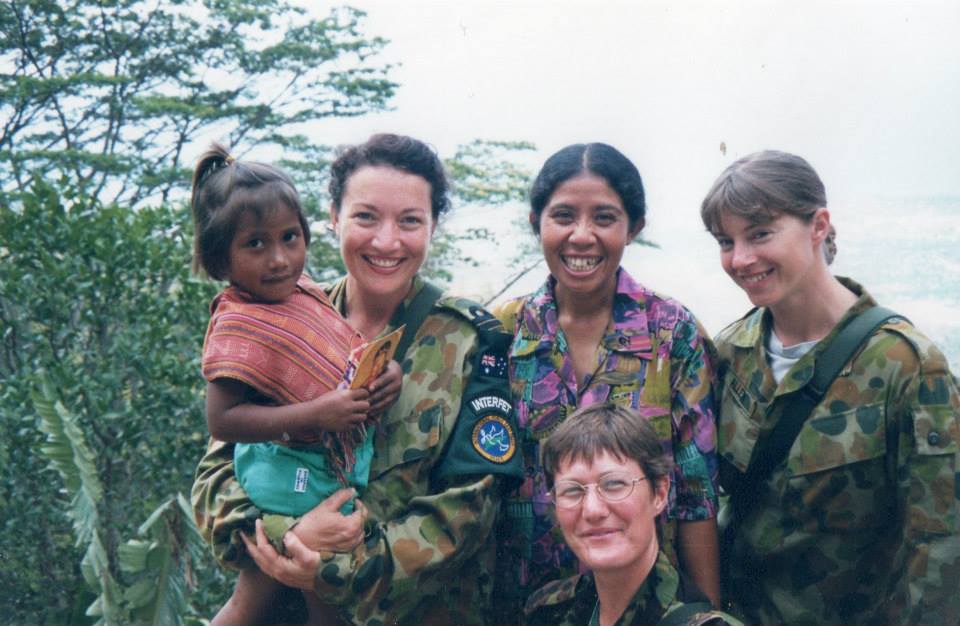September 29 - October 27, 2024: Issue 635
Tamara Sloper-Harding OAM: 25 Years After Being Deployed to timor as part of INTERFET
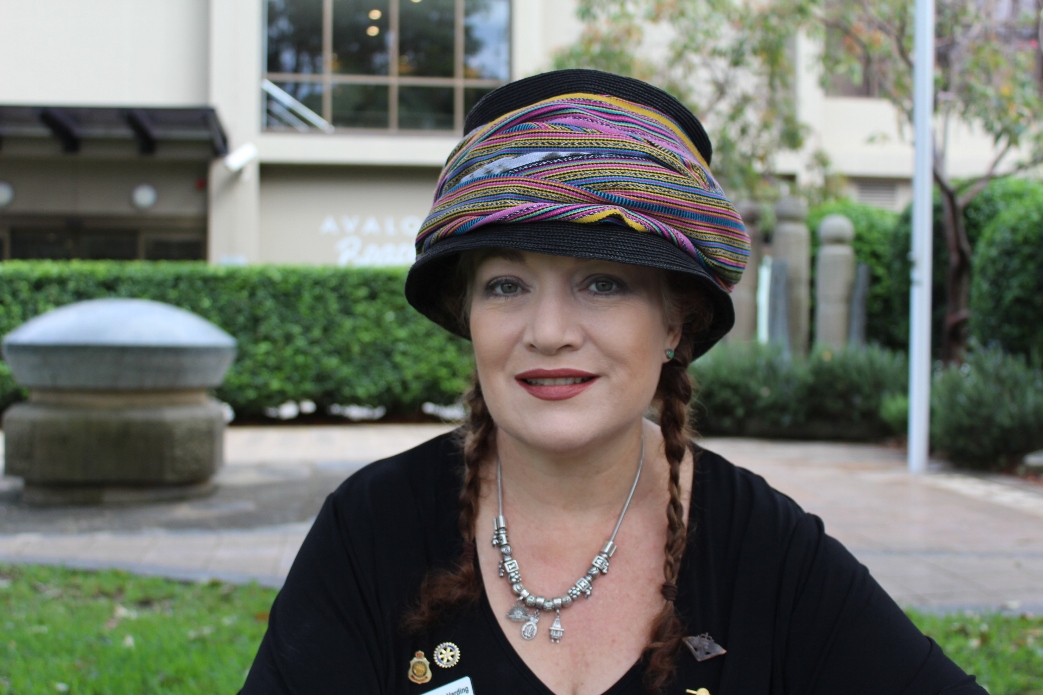
A journey that began 25 years ago for former RAN Lieutenant Commander Tamara Sloper-Harding, and which prompted her to launch Friends of Soibada, commenced at her wedding to Adrian Harding when she took a telephone call that was a call up to duty.
September 20 2024 marked 25 years since Australia deployed peacekeepers to Timor-Leste to quell violence. The violence began in the aftermath of a referendum in August of 1999, where locals voted for independence from Indonesia. Pro-Indonesian militias killed at least 1400 of civilians and displaced half a million more, entire villages and towns were destroyed.
International Force East Timor (INTERFET) was an Australian-led multinational peacekeeping task force, authorised through a United Nations Security Council Resolution, to assist with restoring peace and security in Timor-Leste.
Led by General Sir Peter Cosgrove AK AC (Mil) CVO MC (Retd) from 1999-2000, INTERFET remains Australia's largest peacekeeping mission to date, and at the time was our largest overseas military deployment since the Vietnam War.
Australia played a central role, contributing 5,500 Australian Defence Force (ADF) members to INTERFET, alongside personnel from more than 20 contributing nations.
The Hon Matt Keogh MP, Australian Federal Government Minister for Defence Personnel, Minister for Veterans’ Affairs, who travelled to Timor-Leste to commemorate the 25th Anniversary of the deployment of the International Force East Timor (INTERFET) in Dili, stated:
‘’ We acknowledge all those who have participated in the peacekeeping missions to Timor-Leste including Australian Defence Force Personnel, Australian Federal Police, Australian Electoral Commission, Australian Customs officers and other Australian Government agencies.
We pay tribute to the six Australians who tragically lost their lives while deployed, or as a result of their service.
We also recognise the remarkable resilience of the Timorese people and the enduring friendship between our two nations.
We are grateful to the many Australians who served in Timor-Leste who have regularly returned over these 25 years, strengthening the bonds and productivity of local communities.
It is an honour to mark this significant milestone alongside General Cosgrove, and a number of Australian Defence Force veterans who are returning to Timor-Leste, very fittingly on the 77th anniversary of Australian Peacekeeping.
As commemorative services are held all over Australia, we thank all who served and continue to serve to this day.’’
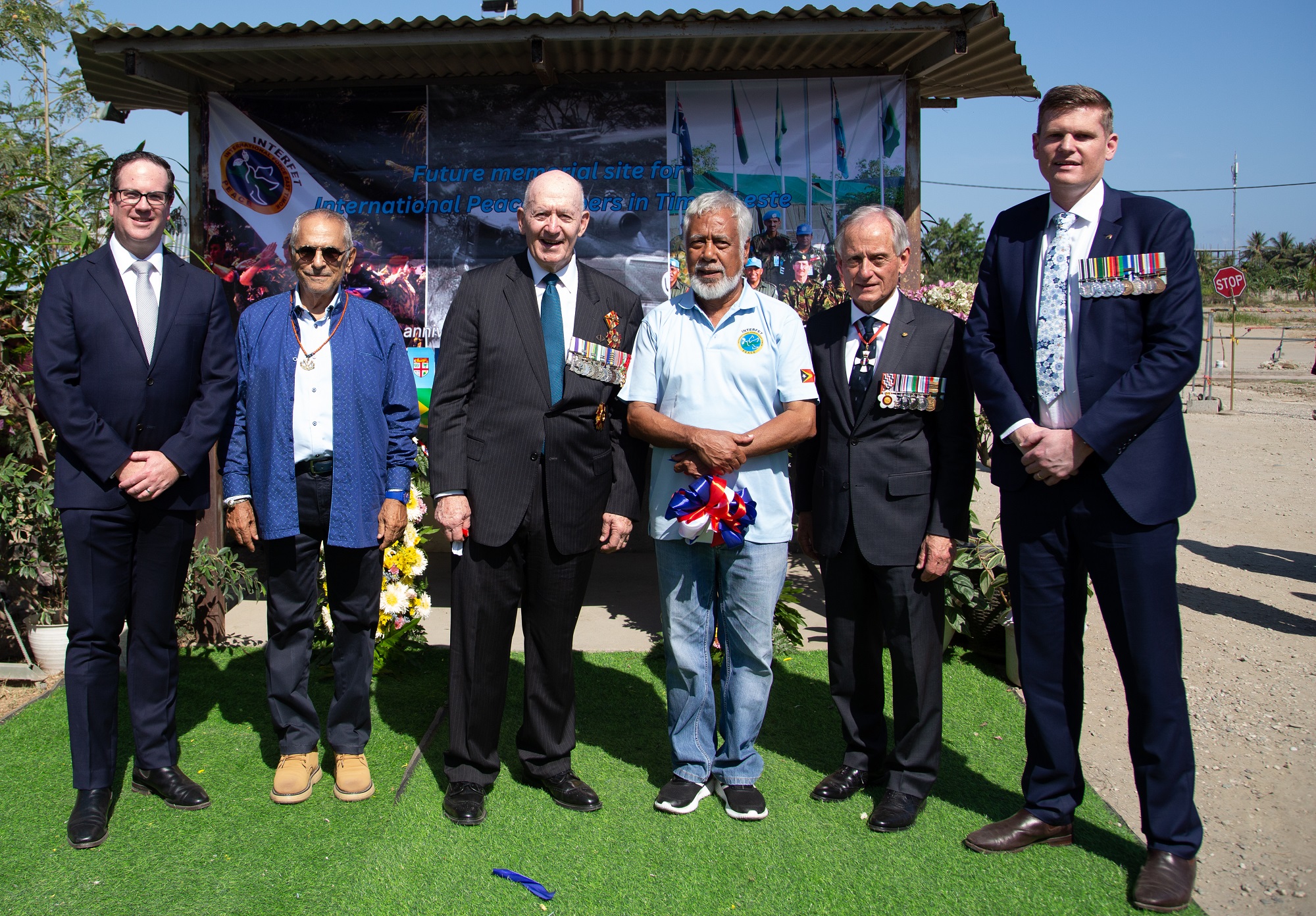
Minister for Veterans’ Affairs and Minister for Defence Personnel, the Hon Matt Keogh MP, President of Timor-Leste José Ramos-Horta, General the Honourable Sir Peter Cosgrove AK, CVO, MC, and Prime Minister of Timor-Leste Kay Rala Xanana Gusmão and officials at a commemoration of the 25th Anniversary of the International Force East Timor (INTERFET) in Dili, Timor-Leste, on 14 September 2024. Photographer: supplied
Tamara attended the commemorative services and events leading into the September 20 service.
On landing she posted to family and friends on social media:
''Even though I am here all the time it’s different to be coming back without a team of volunteers, on my own and for the 25th Anniversary of the INTERFET deployment. Lots of memories are surfacing. A huge thank you to Gil and the Dili Allstars for making me feel so welcome at Darwin airport! This is a challenging trip!''
''The Dili Allstars were the soundtrack to my time in Timor Leste in 1999.''
The celebrations for the 25th Anniversary of the INTERFET Mission began on September 13, 2024, with a series of lectures and a reception ceremony held at the Nicolau Lobato Presidential Palace. A formal reception followed.
The lectures, under the theme “Configuring INTERFET intervention: The case of East Timor”, featured keynote speakers the President of the Republic, José Ramos-Horta, and the Prime Minister, Kay Rala Xanana Gusmão, as well as several international guests, such as Tamrat Samuel, Fernando d ‘Oliveira Neves, Paulo Rangel, Dino Patti Djalal, Penny Wensley AC, Michael Smith AO, and General the Honourable Sir Peter Cosgrove AK CVO MC (retd). The sessions were moderated by the Minister of the Presidency of the Council of Ministers, Agio Pereira, and Professor David Kilcullen.
This commemorative event aimed to recognise the pivotal role of key personalities involved in the lead-up to the INTERFET deployment and subsequent stabilisation of Timor-Leste in 1999. By bringing together influential figures from that crucial period, the lecture series provided a platform for reflection, sharing experiences, and drawing lessons for the future.
“As we mark this significant milestone in our nation’s history, it is crucial that we reflect on the path that led to our independence and the international support that made it possible,” said President Ramos-Horta. “This lecture series not only honours those who played critical roles in our journey but will also inspire future generations to uphold the values of peace, stability, and international cooperation.”
On September 14th, the celebrations continued with a parade from the Port of Dili to the Presidential Palace, followed by the blessing of the INTERFET Memorial, located on the former heliport used by the peacekeeping force next to the Presidential Palace. These activities, with the official opening by the President of the Republic, José Ramos-Horta, and speeches by Minister Agio Pereira and the former INTERFET Commander, Martyn Dun, took place at the inauguration of the memorial.
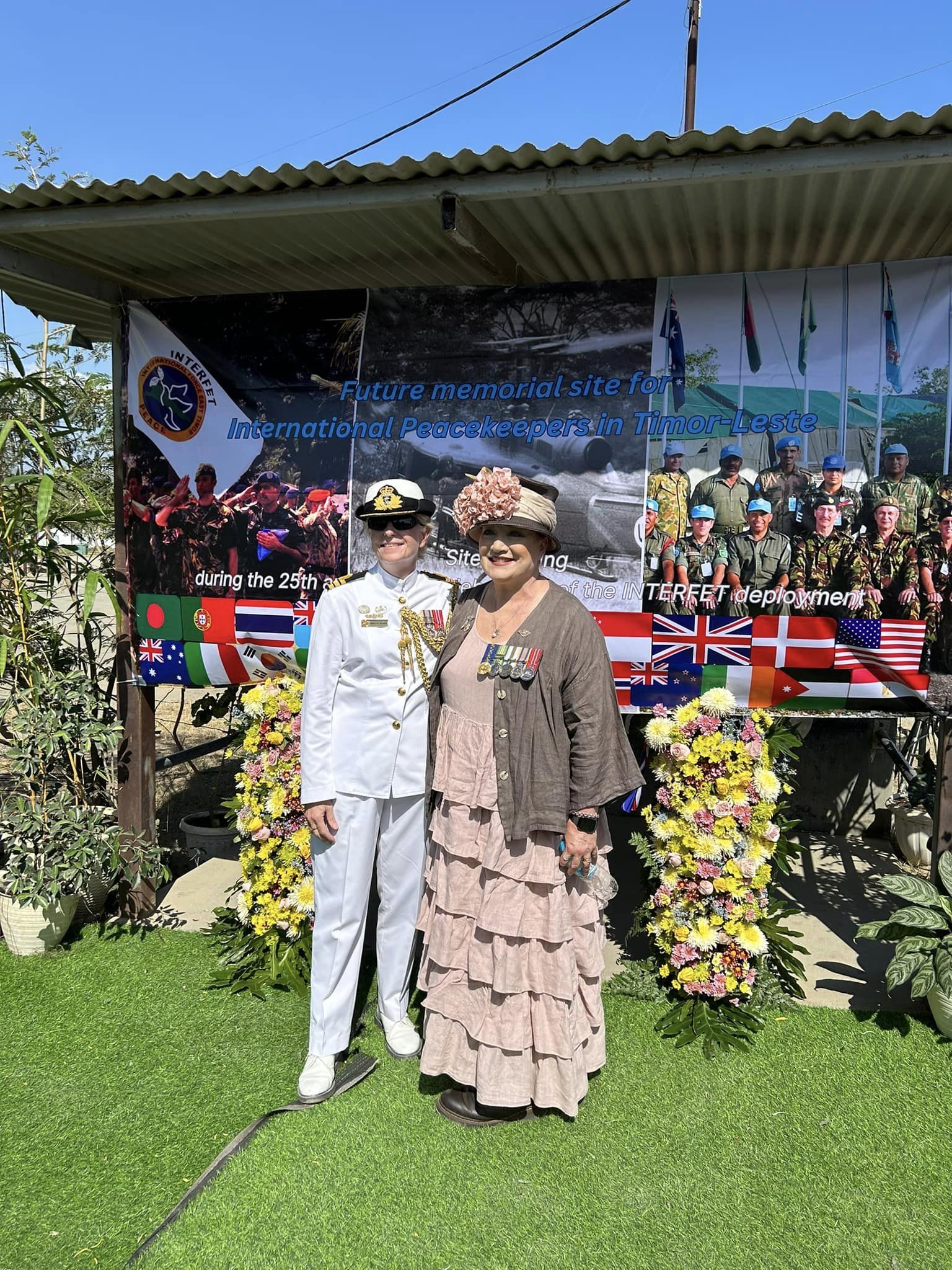
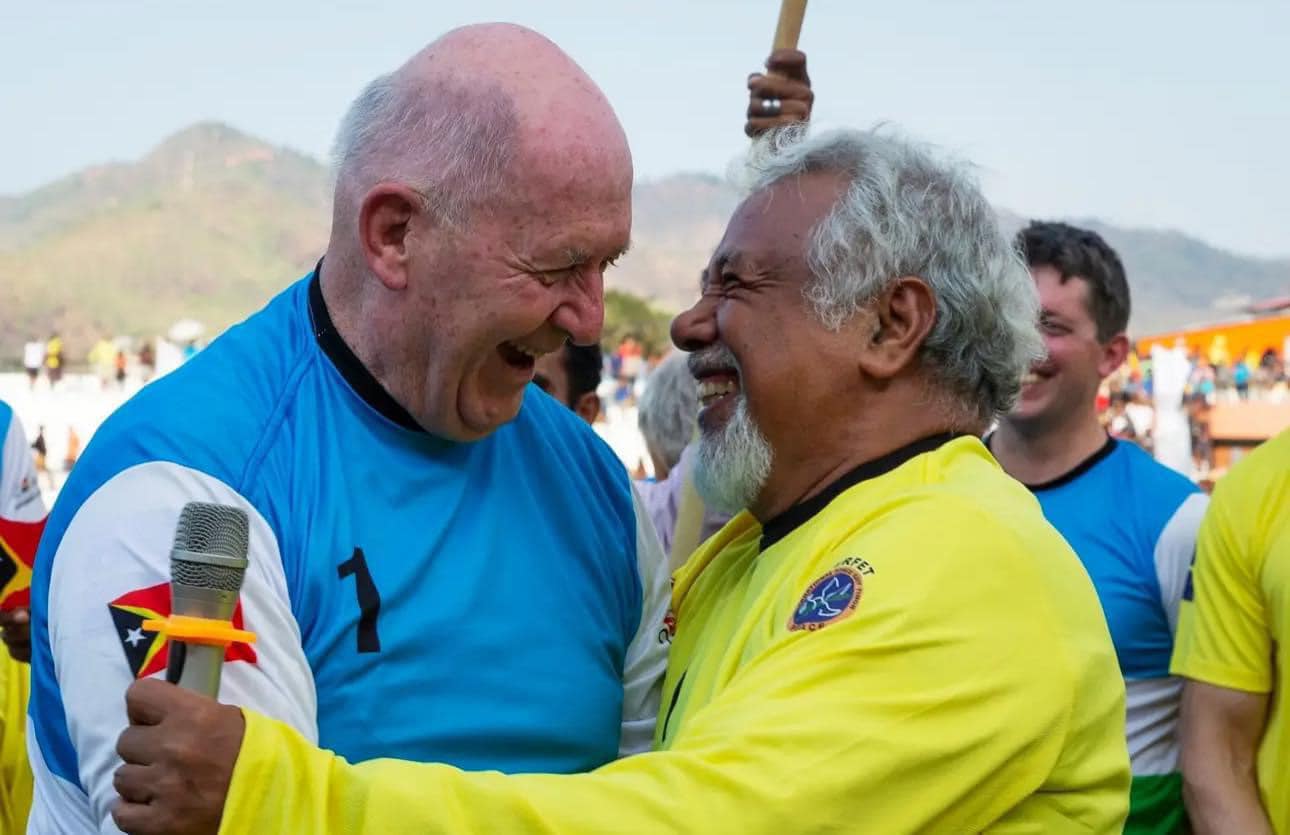
General the Honourable Sir Peter Cosgrove AK CVO MC (retd) and East Timor's Prime Minister Xanana Gusmao - futsal players!
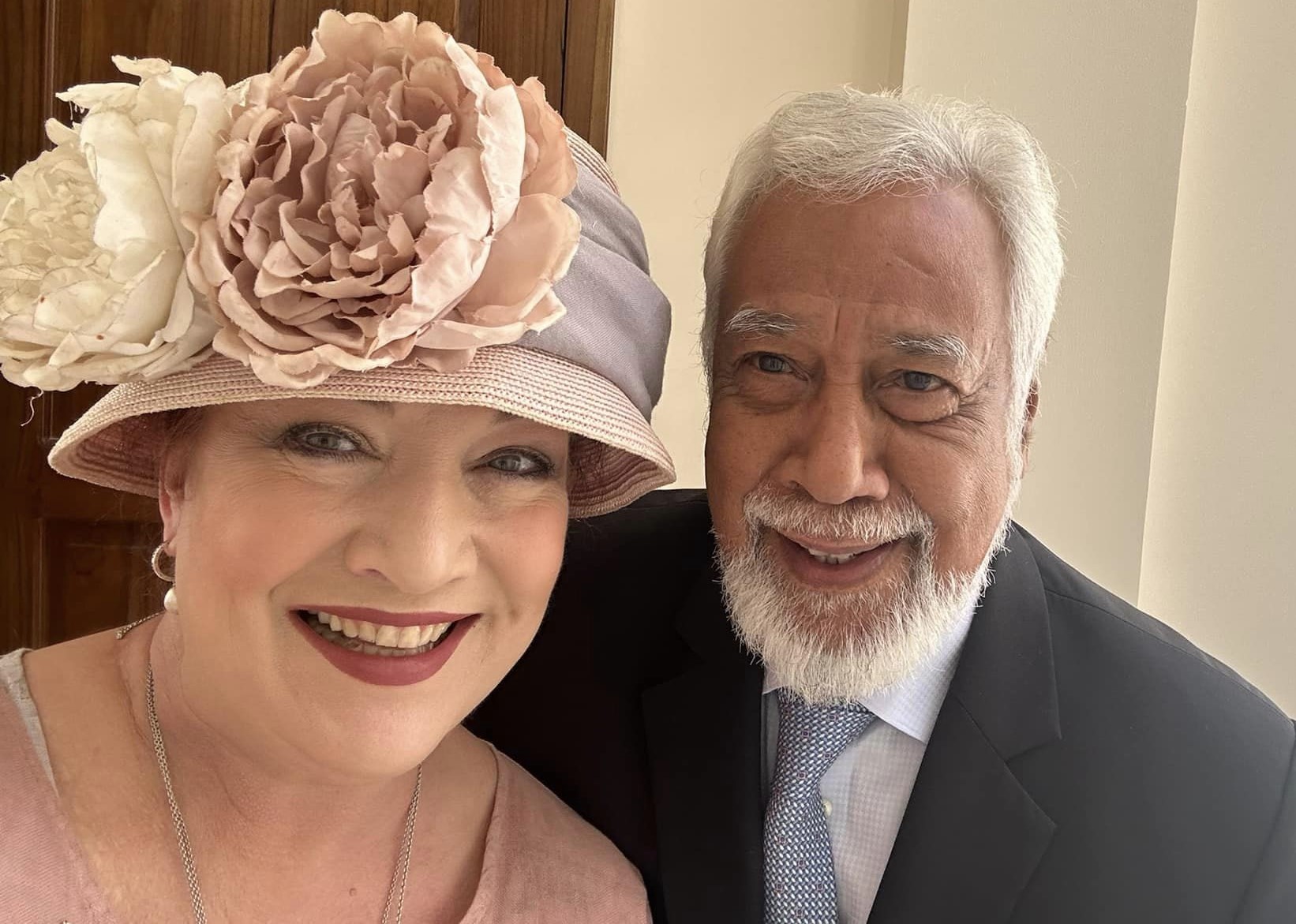
Tamara with East Timor's Prime Minister Xanana Gusmao during the events
Between 4:30pm and 8:30pm, futsal matches, and a concert took place in the Presidential Palace and on the adjacent futsal field. The first game, a women's soccer match, pitted the Ministry of Defence against the F-FDTL, and a second game was between a team from East Timor and a team from the United Nations. The concert featured performances by the Smith Brothers, Australian Army, F-FDTL & Gurkhas, and Dili All Stars.
The National Forces Band of our own Army's version of Acca-Dacca's 'Long Way to the Top' was brilliant!
On September 20, the date marking the arrival of INTERFET in Timor-Leste, a solemn ceremony and a futsal tournament between national veterans and former INTERFET members was held at the headquarters of the Council of National Liberation Fighters (CCLN).
This commemorative event underscored Timor-Leste’s commitment to honouring its history while strengthening its national identity and resilience. It also serves to reinforce the bonds between Timor-Leste and the international community that supported its journey to independence.
Tamara's deployment exposed her to the sufferings of the civilian population following the atrocities during the Timorese struggle for independence. For close to 5 months her role was to gather and assess information to present briefs on the situation to guide senior officers in their decision-making.
This was an ongoing confronting and horrendous nightmare, with your eyes open.
Tamara met this darkness with light; she became involved with orphanages and schools, organising food and aid packages to be sent to her for distribution while there and that has continued since.
Tamara returns twice a year as founder and chair of the Friends of Soibada. The aim is to not just help, but to do so in a way that works to restore dignity. The key objective is to support the local people in their efforts to achieve sustainable development in their region. All the projects are initiated by the people of Soibada themselves.
Soibada is a village in the Soibada Administrative Post, Manatuto District of East Timor.
In 2020 our community celebrated 10 years of the Pittwater Friends of Soibada (now Friends of Soibada).
Tamara is heading back again this October and is looking for volunteers who are great at photography or who have a passion for craft, are teachers or medical personnel.
If you want to involved, please email her at: tamara.harding@friendsofsoibada.com or via tamara.harding@bigpond.com - Ph: 0403 226 699
Tamara transferred to the RAN Reserve (Inactive) as a Lieutenant Commander after almost 19 years in the RAN.
In March, 2011 she was honoured with the award of Pittwater Woman of the Year. Tamara has also received The Rotary International Service Award in recognition of outstanding human endeavour contributing to international peace and goodwill. On Australia Day 2016 she was awarded an Order of Australia Medal for her work for the communities of Timor Leste and Pittwater.
Tamara is still contributing to our community as a Vice President of Avalon RSL Sub Branch, Past Pres. of Rotary, and as a Director of; Furlough House, Carry On, Veterans Housing Australia, Remembrance Driveway Council, Social Justice Pittwater Catholic Parish, and Old Salts.
Her story in her words:
.jpg?timestamp=1523709750826)
.jpg?timestamp=1523709468881)
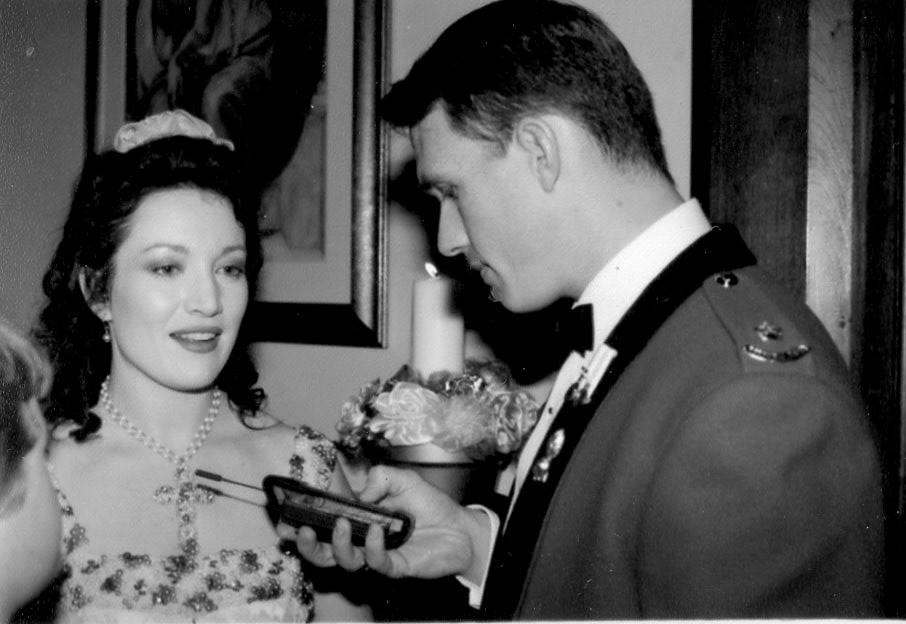
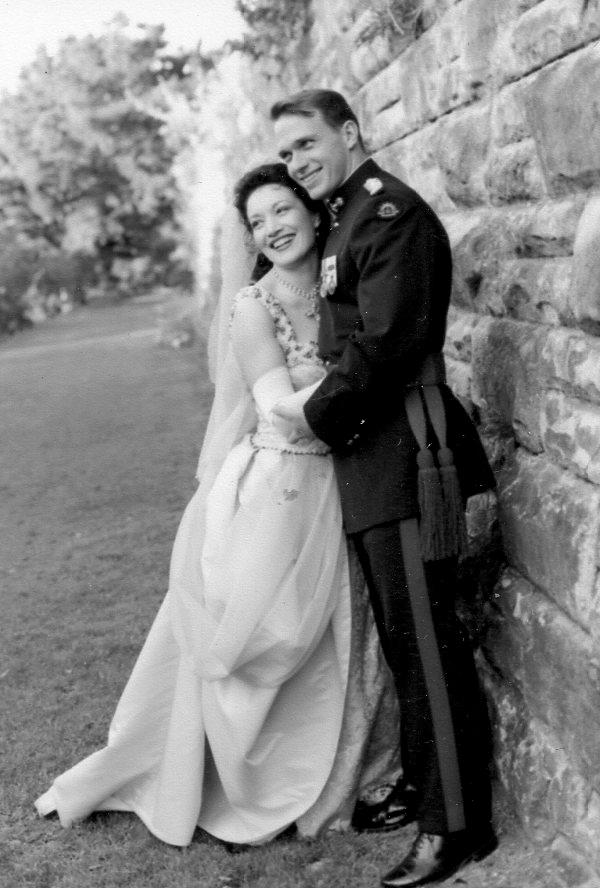
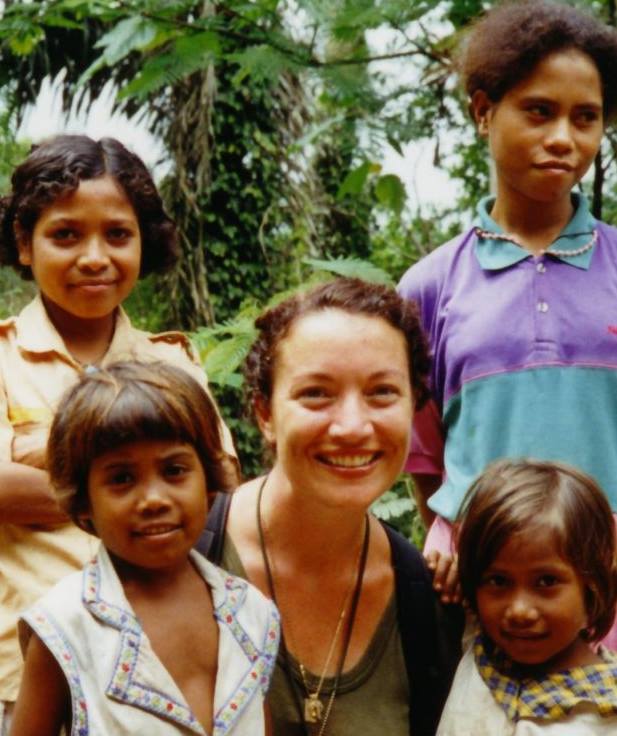
.jpg?timestamp=1523709859328)
.jpg?timestamp=1523709905314)
What was the inspiration for beginning FOS?
To my shame as a child I hadn’t really heard much about Australia’s close neighbour, the tiny half an island known as East Timor. I vaguely remember hearing a little of the story about the Australian journalists, the Balibo Five. It wasn’t until 1999 that I truly came to understand the tragedy that had been playing out on our doorstep for the last 25 years. I was in the Navy and was posted to the Deployable Joint Force Headquarters under the command of General Sir Peter Cosgrove. I was part of the Maritime Element. As a Naval Intelligence Officer I imagined that that is where my service would lie – in the maritime area. That was not to be – I was land based – and that in itself presented it’s own challenges.
In the exciting lead up to my wedding I had a feeling we would somehow get involved but it wasn’t until I received the telephone call in the midst of the reception that it finally became a reality. Instead of spending the entirety of my honeymoon with my new husband Adrian I would spend most of it in the burning remains of the city of Dili and the remote villages in the districts of East Timor.
How or what was the first start of this in our community?
In 2009 I was speaking to a class of students at Maria Regina Catholic Primary School about ANZAC Day and my life in the Australian Defence Force. The children were very inquisitive and interested in my deployments and operations overseas. To bring the focus back to peacekeeping I told them about my time in East Timor. They were fascinated and obviously moved by the stories of the little children over there. The school then invited me back to speak about Timor because the students wanted to do something to help people over there. With the assistance of the teachers we began the process to identify a school in Timor that Maria Regina could link with. I contacted Kirsty Sword Gusmao (Australian born former first lady of Timor Leste) and His Excellency Abel Guterres the then Ambassador. They both came to speak at school. I remember so clearly after assembly when Abel had been explaining to the children the different types of food he had survived on as a child during the Indonesian occupation, walking over to Avalon RSL for lunch. As we crossed Dunbar Park Abel looked at me and said “You could do so much more than merely linking two schools. You could link the two communities in friendship”. I shook my head and said “no way” I then had four very young children and was flat out. However, something clicked in me and before we reached the far side of the park I had agreed to do it.
The next step was Abel and I did a Presentation to Pittwater Council. The Mayor, Harvey Rose, was extremely supportive and the council agreed to link Pittwater with a sub district in Timor Leste. Soibada was chosen as the village in the most need at that time.
I made my first trip back to Timor since 1999 that September. The Pittwater Parish Priest and Principal of Maria Regina, Kathy Gee accompanied me to meet with the village Chiefs and District Administrator.
The following year, 2010 the General manager of Pittwater Council, Mark Ferguson and staff member Jane Mulroney came with Kathy, Father George and me. We signed the official friendship agreements. One between our two local governments and one between the churches. We came up with lots of names for our group but as we were part of the Australia East Timor Friendship Network the name had to be 'Pittwater Friends of Soibada'. As support and interest grew it became necessary for us to register with the ACNC and get DGR status. When we have expanded beyond the peninsula we dropped the 'Pittwater' from the title in everything but official documents.
What was the approach - self sufficiency and raising funds through a variety of means?
As an organisation we have learnt a great deal since those first visits. A visit in 2019 was my 23rd time in the village. Soibada is so remote, very isolated and extremely beautiful. That first trip took us nearly 10 hours to get there. Nowadays, with the brand new road, it’s between 4 to 5 hours.
On our first visit we were shocked at the remaining evidence of the conflict…..Our first reaction was to attempt to fix things. We learnt quickly that that was not the way to go. We had to move beyond band-aid solutions and provide the locals with the skills and materials to do things for themselves.
Even more importantly we had to learn to listen to the community – who better would know what they need that the people themselves. I was very conscious of mistakes made in the voluntourism industry and by so many good hearted people who unknowingly perpetrate the “White Saviour Complex”. Empowering people to help themselves is the key to everything we do.
Every project we undertake is guided by the wishes of the local community. They are as varied as teaching CPR, nutrition, English, gardening, computers and sewing to providing the resources for classroom construction and the newly forming tourism business.
We work very closely with each of the village chiefs from the sucos of Soibada, the doctors and the teachers.
Our biggest challenge is fundraising – especially now there is such a need here in Australia. In fact, when I explain this to people in Soibada they immediately became concerned for us. There is little they can do to help us – so they prayed for us.
When did the Soibada Knitters begin - also - is it only blankets that have been made/sent?
I feel like the Soibada Knitters have been around forever but I think they began in 2010. The main group used to meet on Wednesdays in Maria Regina Church Hall. It is now moved to Avalon Beach RSL where the staff are so welcoming and even others patrons show interest in what is going on. Over the years I visited local nursing homes and we had small groups there. It has been a very good way for our community to get involved and contribute and it is a great social activity for a number of the ladies. As I got busier and could no longer run it my Mum took over the organising. She gets a lot of help from the other ladies.
These generous women do a lot more than knit though. We have lots of ladies who crochet and another group in Avalon that embroiders baby singlets and cute little things. Handmade toys are also fantastic too.
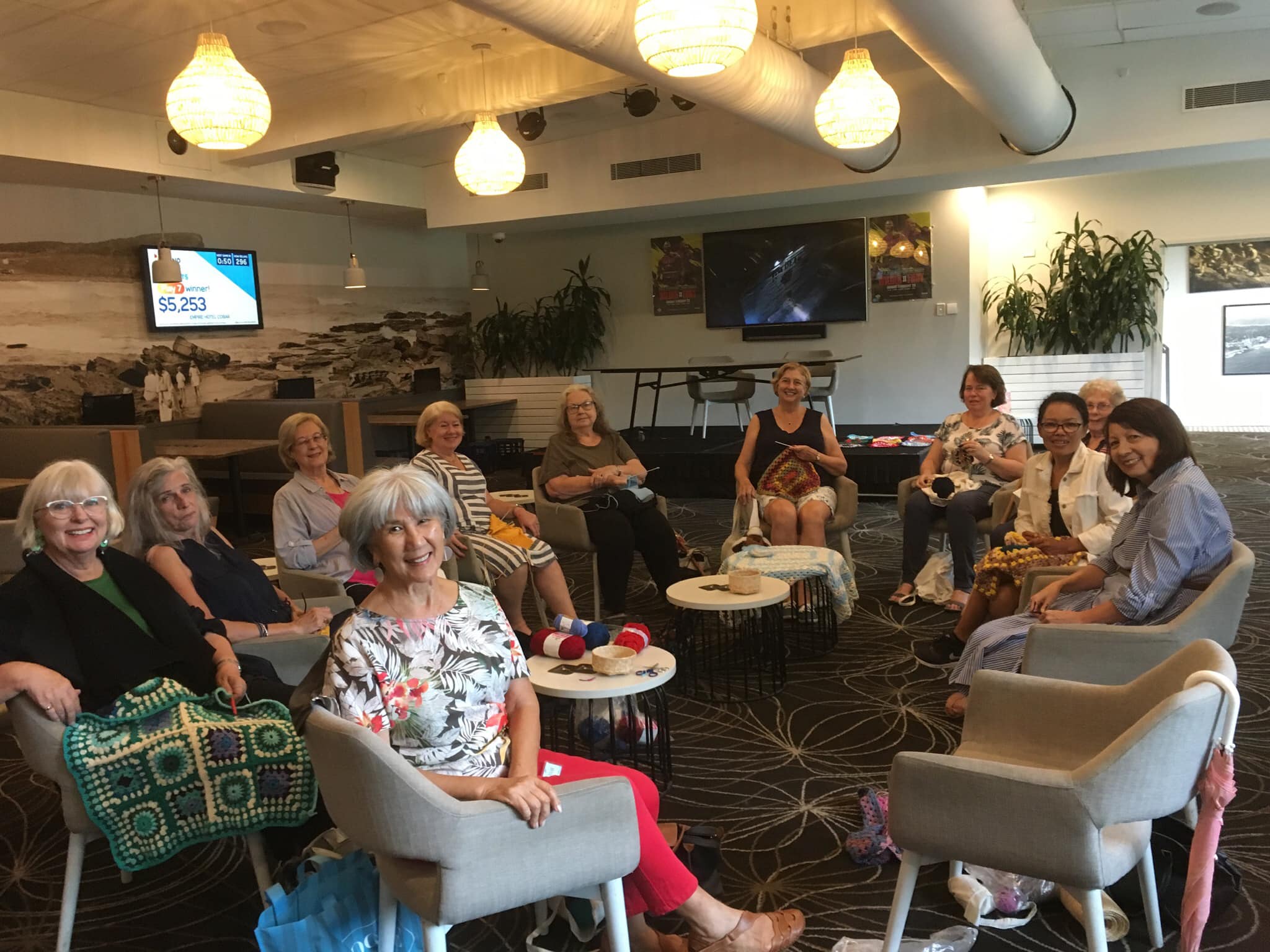
Knitting for Soibada - 2nd group in Avalon organised by Dannie Sloper - the ladies meet in Avalon Beach RSL
Soibada is so high in the mountains that it gets quite cold in the winter. In some of the outer sucos even the summer evenings are cold. After we did the first delivery of blankets to the orphanage in 2010 it became obvious how needed and appreciated they were. People in Australia have said to me; “Wouldn’t it be easier/cheaper just to purchase blankets from somewhere like Kmart or Ikea?” This project is about far more than the donation of a blanket. The families in Soibada love to receive something personal and made especially for them. Many of the local women are great crocheters themselves but just don’t have the materials. However this means that they truly appreciate the effort and skills required to produce the blankets. One of the most lovely things for the knitters is that I can bring back photos of their blankets in the village. It is amazing as we drive into the sub villages to recognise our blankets drying on the clothesline!
The Mother and Baby Bags are a relatively new project but have been one of the most successful. In the past women would give birth at home. To encourage them to come to the doctors or midwives we developed a gift bag of items for a new Mum and Bub. These bags include a handmade blanket, baby clothes, a gift for the Mum and essentials, purchased locally for a new baby. I was astonished last year when I visited the maternity centre and saw that the midwives had every recipient sign for the bag.
The bi-annual visits to Soibada - please share some of the projects and people who have gone - what were they each doing?
When people show an interest in helping out in Soibada I usually ask what their interests or skills are. The requests from the community in the village are so varied that it provides a wide array of projects – something for everyone. We have had teachers, doctors, nurses, surf life savers, artists, builders, water specialists, plumbers, hairdressers, sewers, knitters, students, bee keepers, custard apple farmers, photographers, film makers, dancers, women’s health specialists.
FOS then widened its works to support/encourage autonomy and local industries - a guest house, new high school - please share a little about some of these projects...
The Training centre and guest house was the brainchild of the Soibada Parish Priest Father Tiago Soares da Costa. The tourism industry would be a great prospect for this beautiful village and there is a need for suitable accommodation for visitors. The training centre aspect gives us facilities in which to run our programs. It was constructed by local tradesmen and funded by the community of the Northern Beaches, including the Rotary Clubs of the upper Northern Beaches and Ryde.
The accommodation is fairly basic but it is fine for our volunteers twice a year. Some local women cook for us and give us lessons in making the local dishes. We are developing a cook book and making some very authentic instruction videos. One of our plans is to take tourists on cooking tours to Soibada in the future.
The construction of the hospitality training classroom at the Senior High School was an integral part of the schools focus on developing trades and skills. Tourism is a real possibility and they will need people trained in that industry to make it work. This building was funded by a combination of groups including Upper Northern Beaches Rotary and many schools on the Northern Beaches.
The Men’s Workshop in Tasi Fatin was the direct result of a meeting with the young men of that very remote Suco. They wanted somewhere to be taught trade skills and learn some carpentry. Last year donors provided the tools and the locals constructed the building.
The water project at the Maternity Clinic was one of our biggest challenges. Thank goodness the Royal Australian Navy assisted us in shipping the equipment, including an industrial washing machine, from Darwin.
Staff from Mater Maria Catholic College came to the village to see how we can get students both here and in Soibada more involved with each other in the future.
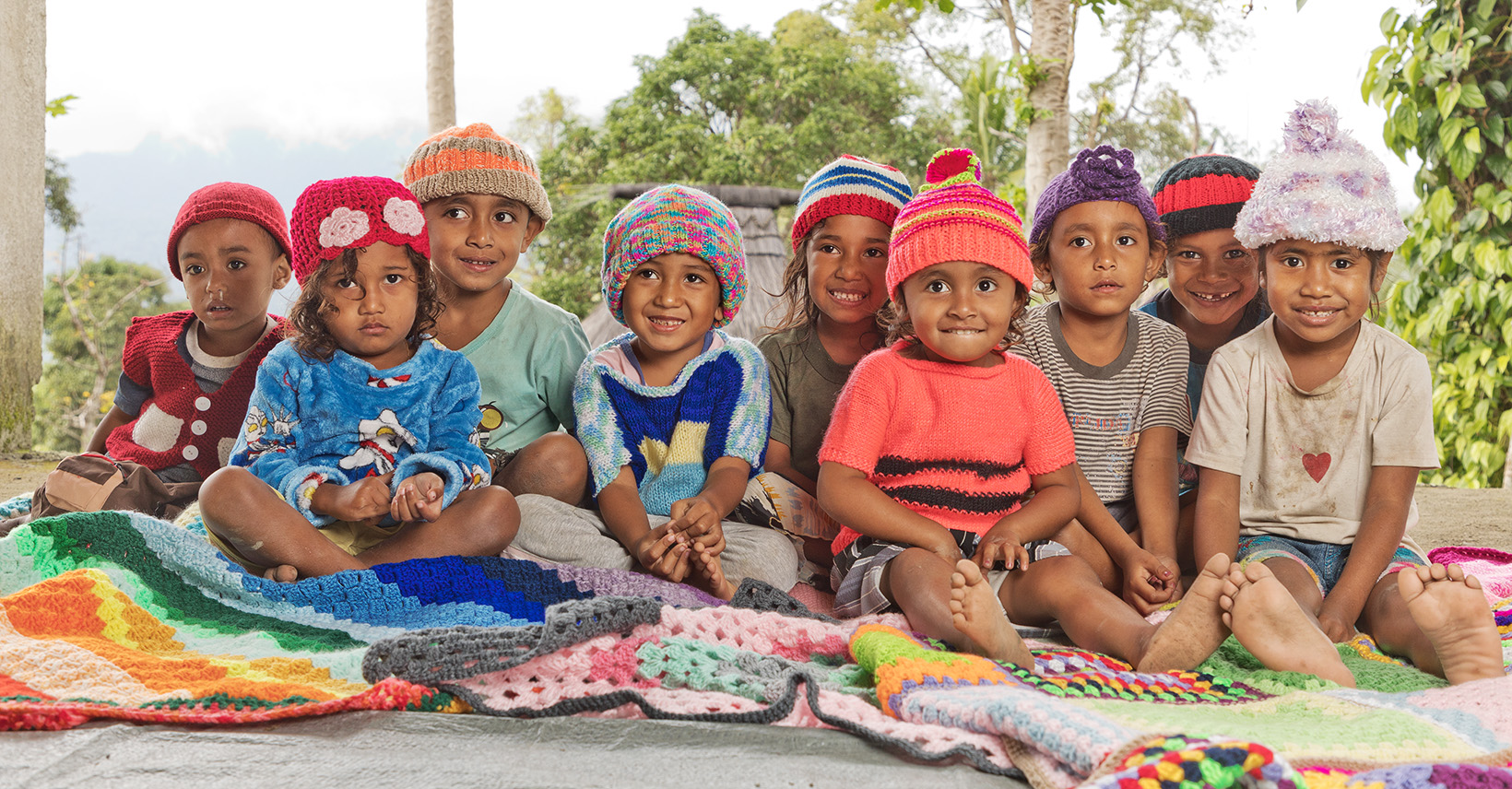
A Heath focus has remained part of what PFOS supports through such initiatives as care for babies, establishing food gardens (seeds for Soibada) with more variety in vegetables or Days for Girls - what else has there been - and what results have you seen so far?
Days For Girls one of our most successful programs. We have been distributing the sanitary kits in the village for quite some time now. The Senior High School Principal Joanico da Costa says there has been a marked increase in school attendance from the girls since the project began. They used to miss up to 65 days a year due to their menstrual cycle and the inadequate facilities.
A few years ago the medical staff requested CPR training for the community. Lifesaving NSW, Avalon and Newport Beach Surf Lifesaving Clubs have all had volunteers running very successful programs.
We have also focused on other health needs - everything from clean water and sanitation, to fresh food gardens as well as medical specialists areas. A medical team accompanies Pittwater Friends of Soibada during their July visit each year.
We are looking to expand the medical program. The people of Soibada have no access to specialist care such as ENT doctors, dentists, optometrists and dermatologists The doctors of Soibada have requested that we include specialist doctors in our medical team to meet the needs of the people.
Those who would like to contribute can contact me (Tamara) to discuss.
